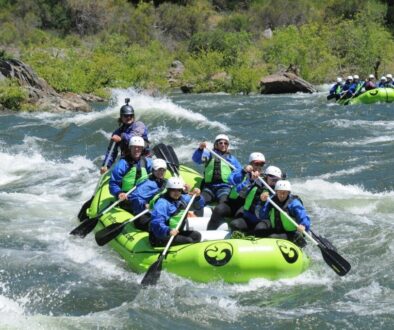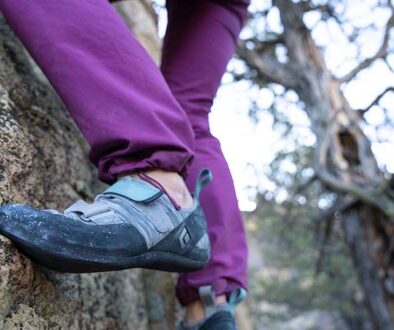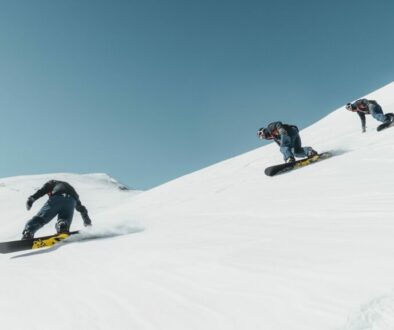Camping Hacks for a Stress-Free Outdoor Adventure
Camping is a popular outdoor activity that allows people to connect with nature, experience adventure, and escape the hustle and bustle of daily life. However, without proper planning and preparation, camping can quickly become stressful and overwhelming. In this article, we will explore essential camping hacks that can ensure a stress-free outdoor adventure. From essential preparations to safety and emergency preparedness, we will cover all aspects to help you have a memorable and enjoyable camping experience. So, let’s dive into the world of camping hacks and discover how to make the most of your time in the great outdoors.
Essential Preparations
Before embarking on a camping trip, it is crucial to make essential preparations to ensure a smooth experience. Researching the campsite beforehand is essential to understand the facilities available, rules and regulations, and any specific requirements. Additionally, packing appropriate gear such as camping tents, sleeping bags, cooking utensils, and clothing suitable for the weather conditions is vital. Planning meals and snacks in advance can save time and ensure you have enough food to sustain your activities throughout the trip.

Setting Up Camp
Choosing the ideal campsite sets the tone for your camping adventure. Look for a flat and well-drained area away from potential hazards like dead trees or rocky terrain. Once you’ve found the perfect spot, pitching a tent effectively is crucial for a comfortable night’s sleep. Ensure you have all the necessary equipment, and follow a step-by-step process to set up your tent securely. Creating a comfortable sleeping area by using sleeping pads, pillows, and warm blankets can enhance your camping experience.
Campfire Tips and Tricks
A campfire is an essential part of the camping experience, providing warmth, light, and a gathering spot for family and friends. Building and maintaining a campfire safely is vital to prevent accidents. Follow the guidelines provided by the campsite and make sure to have a safe distance between the fire and any flammable materials. Cooking meals over the campfire can be a fun and delicious way to enjoy food while camping. Explore various cooking methods such as using a grill, aluminum foil, or cooking directly on the flames. Don’t forget to engage in fun campfire activities like storytelling or roasting marshmallows!
Food Storage and Handling
Proper food storage is essential when camping to prevent wildlife encounters and ensure food safety. Store food in secure containers or coolers to keep it away from animals. Be mindful of the campsite’s rules regarding food storage and disposal. Creative camping meal ideas can make your dining experience more enjoyable. Plan simple yet delicious meals that can be easily prepared using limited resources. Don’t forget to pack enough snacks and beverages to keep you fueled throughout your outdoor adventure.
Exploring the Outdoors
Camping provides a unique opportunity to explore the beauty of the natural world. Before setting off on a hike, familiarize yourself with the trail and its difficulty level. Ensure that you have appropriate hiking gear, including sturdy shoes, water bottles, and a compass or GPS device. Wildlife encounters are common while camping, so it’s essential to know how to handle such situations safely. Observe animals from a distance, avoid feeding them, and store any attractants securely to prevent unwanted encounters.
Protecting Yourself from Insects and Pests
While exploring the outdoors, it’s crucial to protect yourself from insects and pests. Use effective insect repellents containing ingredients such as DEET or picaridin to keep bugs at bay. Be aware of different types of pests in the area and take appropriate measures to deal with them, such as keeping food covered and sealing any openings in your tent. In case of bug bites, natural remedies like aloe vera or tea tree oil can provide relief.
Keeping Clean in the Wilderness
Maintaining proper hygiene while camping is important for overall comfort and well-being. Establish a routine for personal hygiene, including brushing your teeth, washing your hands, and taking quick showers if available. Proper waste management and disposal are crucial for environmental conservation. Pack garbage bags and separate your waste, disposing of it properly in designated areas. Following Leave No Trace principles ensures minimal impact on the environment.

Weather Preparedness
Weather conditions can significantly impact your camping trip. Monitor weather forecasts regularly to stay informed about potential changes. Prepare for different weather conditions by packing appropriate clothing layers, rain gear, and extra tarps to protect your campsite. In case of extreme weather events, prioritize your safety and follow the guidance of campsite staff or park authorities.
Fun and Games
Camping is not just about survival and adventure; it’s also an opportunity for fun and relaxation. Engage in campfire games, storytelling, or sing-alongs to create an enjoyable atmosphere. Outdoor activities like hiking, fishing, or bird-watching can add an element of excitement to your camping trip. Capture memories through photography or painting, and take the time to unwind and savor the beauty of nature.
Technology and Electronics
While camping offers a chance to disconnect from the digital world, technology can still be a useful tool for convenience and safety. Utilize gadgets like camping stoves, water purifiers, or portable chargers to enhance your camping experience. However, it’s essential to strike a balance and disconnect from technology to fully immerse yourself in the beauty of nature.
Safety and Emergency Preparedness
Prioritizing safety is crucial when venturing into the wilderness. Acquire basic first aid skills and make sure to pack a well-stocked first aid kit. Familiarize yourself with navigation techniques and carry appropriate tools such as maps, compasses, or GPS devices. In case of emergencies, stay calm, assess the situation, and seek help if needed. Prepare for emergencies by informing someone about your camping plans and checking in regularly.

Leave No Trace Principles
Camping responsibly means minimizing your impact on the environment. Embrace Leave No Trace principles, which include practices like packing out your trash, respecting wildlife and vegetation, and staying on designated trails. By adhering to these ethical guidelines, you contribute to the preservation of nature for future generations to enjoy.
Camping with Kids
Camping with kids can be a rewarding experience for the entire family. Plan kid-friendly activities like scavenger hunts, nature crafts, or stargazing to keep them engaged. Ensure their safety by teaching them basic camping rules, such as staying with an adult and not wandering off alone. Be prepared for their needs by packing appropriate clothing, snacks, and entertainment options.
Conclusion: Camping Hacks
Camping hacks can make a significant difference in your outdoor adventure, ensuring a stress-free and enjoyable experience. By following the guidelines discussed in this article, you are well-equipped to plan a successful camping trip. Remember to make essential preparations, set up camp wisely, utilize campfire tips, handle food properly, explore the outdoors responsibly, prioritize hygiene, be prepared for different weather conditions, have fun, prioritize safety and emergency preparedness, practice Leave No Trace ethics, and consider the needs of camping with kids. Now it’s time to pack your gear, embrace the wonders of nature, and have a remarkable camping adventure!
FAQs:
-
- Is camping suitable for beginners?
Camping can be enjoyed by people of all experience levels. It’s important to start with basic preparations and choose a suitable campsite for beginners. - What should I do if I encounter wild animals while camping?
Maintain a safe distance, avoid making sudden movements, and never feed wild animals. Familiarize yourself with local wildlife and follow the guidelines provided by park authorities. - How can I prevent mosquito bites while camping?
Use insect repellents containing DEET or picaridin, wear long sleeves and pants, and set up mosquito nets around your sleeping area. - Are campfires allowed in all camping areas?
Campfire rules vary depending on the campsite and local regulations. Always check with the campsite management before starting a fire. - What are some must-have items for a camping trip?
Essential camping gear includes a tent, sleeping bag, cooking utensils, headlamp/flashlight, first aid kit, and appropriate clothing for varying weather conditions.
- Is camping suitable for beginners?
Also Read:
Shanghai Showcase: Navigating China’s Cultural Hub
10 Must-Visit National Parks for Thrill-Seekers in the USA



